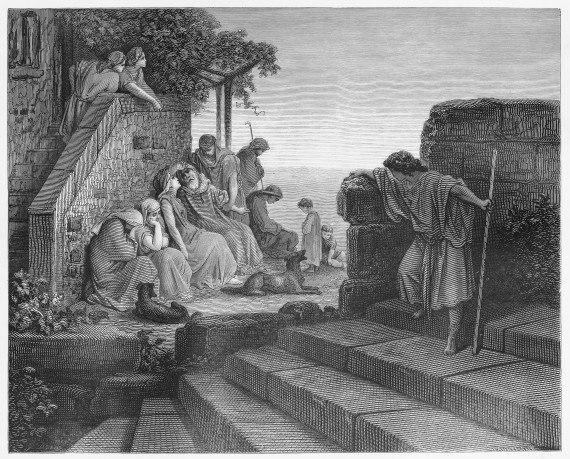
By Steve Stuckey
Last week Beau put up a post on “How to Identify an Evangelist in Your Ministry”. I agree that the six indicators that he lists are a good start to identifying someone as a potential evangelist. I was intrigued that some of his indicators suggested an underlying tension between an evangelist and those running established church ministry programs.
Older/Younger Genre of Biblical Stories
In the Scriptures there is a similar archetypal tension described in a series of stories involving one who is older and one who is younger. In all cases they are members of the same family—usually brothers. For example: Cain and Abel, Ishmael and Isaac, Joseph and his brothers, Esau and Jacob, Aaron and Moses, Saul and David, the Older brother and the Prodigal Son. In some stories, the tension results in hatred, jealousy and even death in the case of Abel.
In the Jewish world, the older of the two was given a cultural advantage. They inherited a double portion of the family estate but they were also saddled with responsibility of carrying on the family name. In the Prodigal Son story, the older son’s life was tied to the land and almost to a fault he was rooted, stable, and responsible. People depended upon him to work hard and be a steady person.
In all of the stories listed above, the younger person was a shepherd or keeper of animals. Their life was one of restless wandering, exploring, and seeking out green pastures. In all of the stories, the younger person received some special blessing or favor from the Lord. It was as if God were saying, “I am not a God of the culture. I am free to choose and work through whom I please.” In many cases God’s choice added to the tension between the family members and often caused the older person to question God’s goodness.
In addition, many of the younger persons exhibited a higher level of creativity and inventiveness. Some like Joseph and Jacob were dreamers. Some like David and the Prodigal were loose with the rules and expectations of the culture. Jacob, Joseph, Moses, and David each encountered a gracious and merciful God and that encounter profoundly marked their lives.
Three Implications
Evangelists and the Prodigal
Beau’s indicators of an evangelist fit the profile of the younger person more than the older person in the young/old genre of Biblical stories. The innate curiosity and wandering restlessness gives many evangelists an affinity for other seekers. Their discomfort with an environment that is too rigid or stable causes them to question the status quo. Rather than focus on who is in the room, they are more interested in who is not in the room yet. If evangelists are not the redeemed prodigal son, they are at least good friends with him.
Many of the evangelists that I know are energetic extroverts, but not all. I have a low energy introvert friend who has led hundreds of international students to Christ over her lifetime. What sets her apart from others is her interest in people and what makes them tick. She has the uncanny ability to ask people questions that lead to evangelistic conversations.
The Vertical Dimension
In addition to the indicators that Beau has listed, most of which are social tendencies, I would add a vertical or spiritual instinct. Evangelists exhibit a trust in God. They assume that he is alive, with them and at work in their environment. They are expectant and look for clues of his initiative. Their faith is often simple and refreshingly straightforward. They believe in the power of God and as a result many evangelists are often strong prayer warriors. This is certainly true for my introverted friend that I mentioned above. It is no accident the she has a loyal prayer team that prays for her daily. She herself prays daily for those she is working with and God hears her prayers.
If an evangelist is to mature they must have a vertical dimension that not only reaches upward to God but downward to their own inner world. The temptations of the prodigal are also the temptations of the evangelist. The tendency to wander both morally and theologically has led some young evangelists into a swamp of despair and heartbreak.
All In the Family
The prodigal son story, which many scholars believe was Jesus retelling of the Esau/Jacob story, emphasizes one other important fact. Both older and younger son are part of the same family and both need the gracious love of their father. Neither one deserves what they get. Their ability to relate to one another is based on that reality. And even though the dispositional tension between the two may remain, it can become a creative tension if they realize they both need something of what the other has to offer. The older son, whose type often leads our churches, needs to loosen up a bit. And the young evangelist type may need to become less flaky and more dependable.
Question: Who do you identify with in the older/younger stories? What does your opposite have to offer you?

